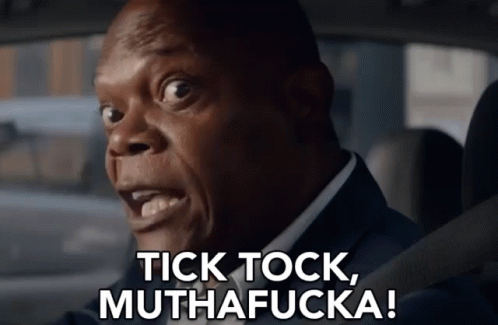Has Google Given Up on TV Ads?
We keep waiting for the digital ad juggernaut to make a power move that may never come
For as long as I can remember, Google was going to somehow, most definitely, probably someday going to get a big piece of that $70 billion US TV ad market.
After all, Google has proven to be the ultimate digital media monetizer, and TV is rapidly becoming digital, in the way its distributed, viewed, bought and sold. Surely, Google is set to make a power move and disrupt how this. $150 billion global industry operates.
Except when is this going to happen exactly? Is it possible that they’ve given up?
Google has made more than a few attempts to bring its software/auction-based form of ad buying to TV, as far back as 2006. They’ve tried a marketplace, branded TVs, software, etc.
Right now, when you talk about Connected TV advertising (CTV)- arguably the most exciting part of the ad industry, Google is barely a player. Roku’s business is exploding, and the company has now forged a intriguing partnership with Nielsen to begin testing dynamic ad insertion in TV (the kind of stealth power move Google used to be known for).
And of course, Amazon - home of the world’s most lucrative side hustle (ads) - is rapidly making inroads in CTV ads with Fire TV devices and the ad-supported service IMDB.
Google is in CTV - but not in the way you’d think. For years, Google has been competing with Comcast to become the go-to ad serving company for the streaming future. And they’ve had some big wins, such as managing ad delivery for the likes of Paramount+
But what is that getting them exactly? I’ve written more than once how Google getting its hooks into a TV company would somehow lead it to becoming that company’s ad seller/monetizer. I’m still waiting.
Lightshed’s Rich Greenfield wrote last summer about how Google looms as a sleeping giant in TV given its plans to become an operating system for the medium, thanks to a souped up Chromecast and or software built into hardware or cable systems.
“Worth noting that while today Google does not appear focused on other companies’ ad businesses (meaning taking a share of Pluto or Peacock or Tubi revenues), it is hard not to think about the strategic threat to companies like Trade Desk if Google takes a greater share of the TV OS/device market.”
God knows, Google is much better at search and UI than cable companies, so the more they get into this arena, the better for all of us. But it’s so not Google to just let the ad monetization part slide by. To get anywhere there, you’ve got to control ad inventory. Roku and Amazon make app providers hand over some ad space as part of distribution deals. Chromecast -at least to the best of my knowledge, doesn’t work this way - so Google has no leverage here (please correct me if I’m wrong).
Given that, how has Google not blown away a Tubi or a Pluto or a Peacock with a big check so they can handle their ads? Why didn’t they buy one of these companies when they had the chance?
Why don’t they buy Roku already (other than, you know, the outrageous cost, and the regulatory battle that would entail)?
Yes, you can make a very fair argument that Google is - doing just fine. Consider the recent Wall Street Journal piece on how Google, Facebook and Amazon now pull in more than half of all ad dollars. Not digital - ALL THE DOLLARS.
Plus, Google can very reasonable claim that they ARE in TV in a much bigger way that you might think. First of all, YouTube is absolutely massive, and more and more people are watching it on connected TVs - which Google can sell specifically to TV brands. Plus, for a generation or three, YouTube is their primary video entertainment vehicle, regardless of what device they are watching on. Linear TV, addressable - these all may seem like a huge pain in the ass when you can just continue to innovate on a platform you own.
Let’s not forget that Google has its own skinny bundle, YouTube TV. Though as far as I can tell (I’m not a subscriber because of the Knicks and Yankees), Google hasn’t blown the world away with innovative forms of targeted TV advertising on the service. In fact, I hear sometimes they leave ad space unsold.
You’d think if Google were that interested in changing TV advertising they would have dropped the price of YouTube TV instead of raising it, and make a huge market share push that could help them experiment with ads on a much bigger scale.
That’s what Amazon is positioned to do with its upcoming exclusive NFL streaming deal. If I told you a few years ago that Amazon would beat YouTube to such an arrangement - I guess you’d believe me, but I’d still have bet on Google to be the aggressor. The best way to shake up television is to go after the sport that underwrites the whole business.
Again, maybe Google just has much bigger fish to fry. Yet there was a time when the company aspired to take over all forms of advertising - print, even radio (they once bought a programmatic radio company called Dmarc).
Side note - isn’t it interesting that Google seems to be letting companies like Spotify own digital audio ads, as that medium explodes? I would never have expected that.
I would still expect Google has another huge TV ad card to play. I just don’t know what that is. What do you think?







